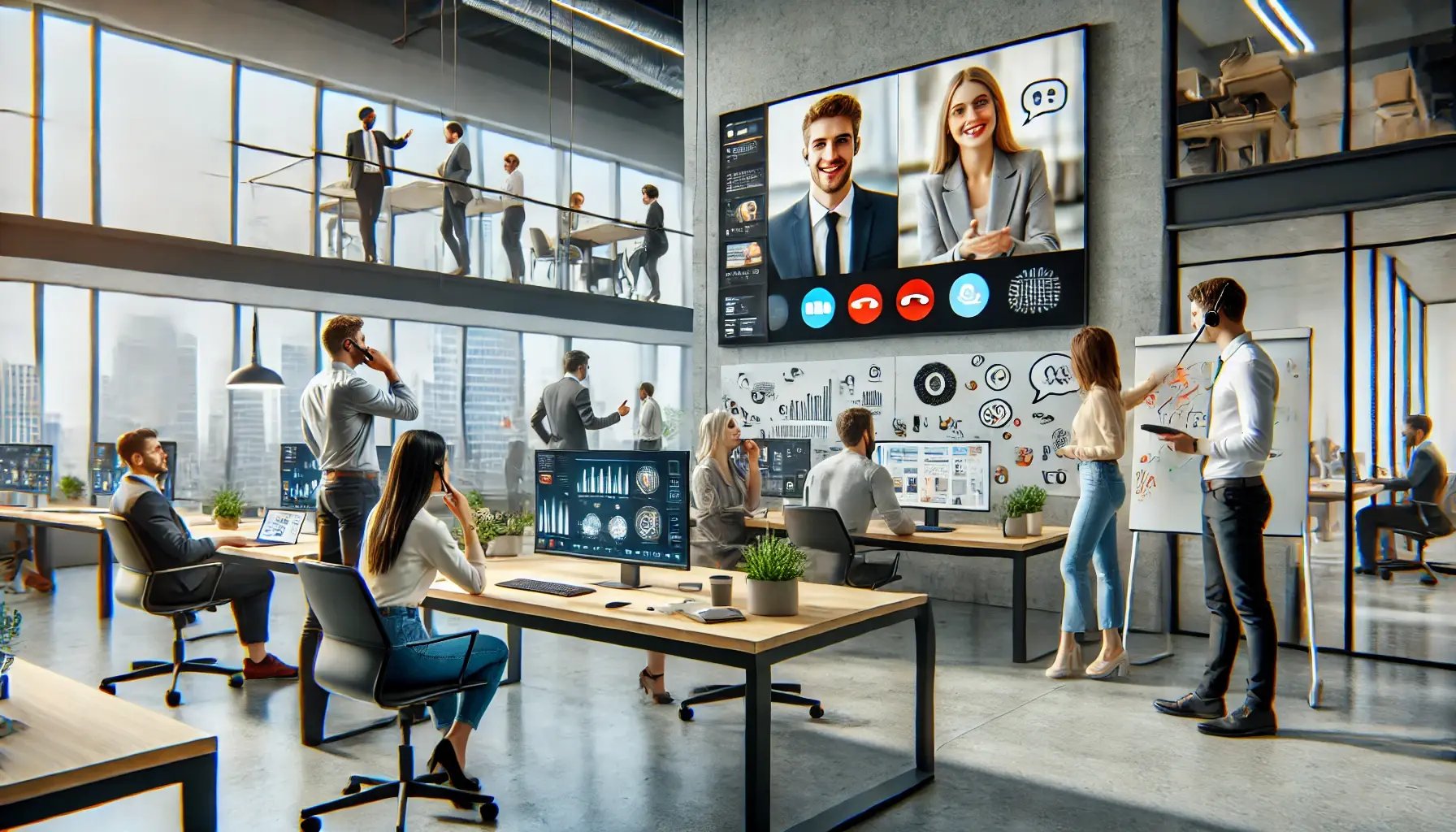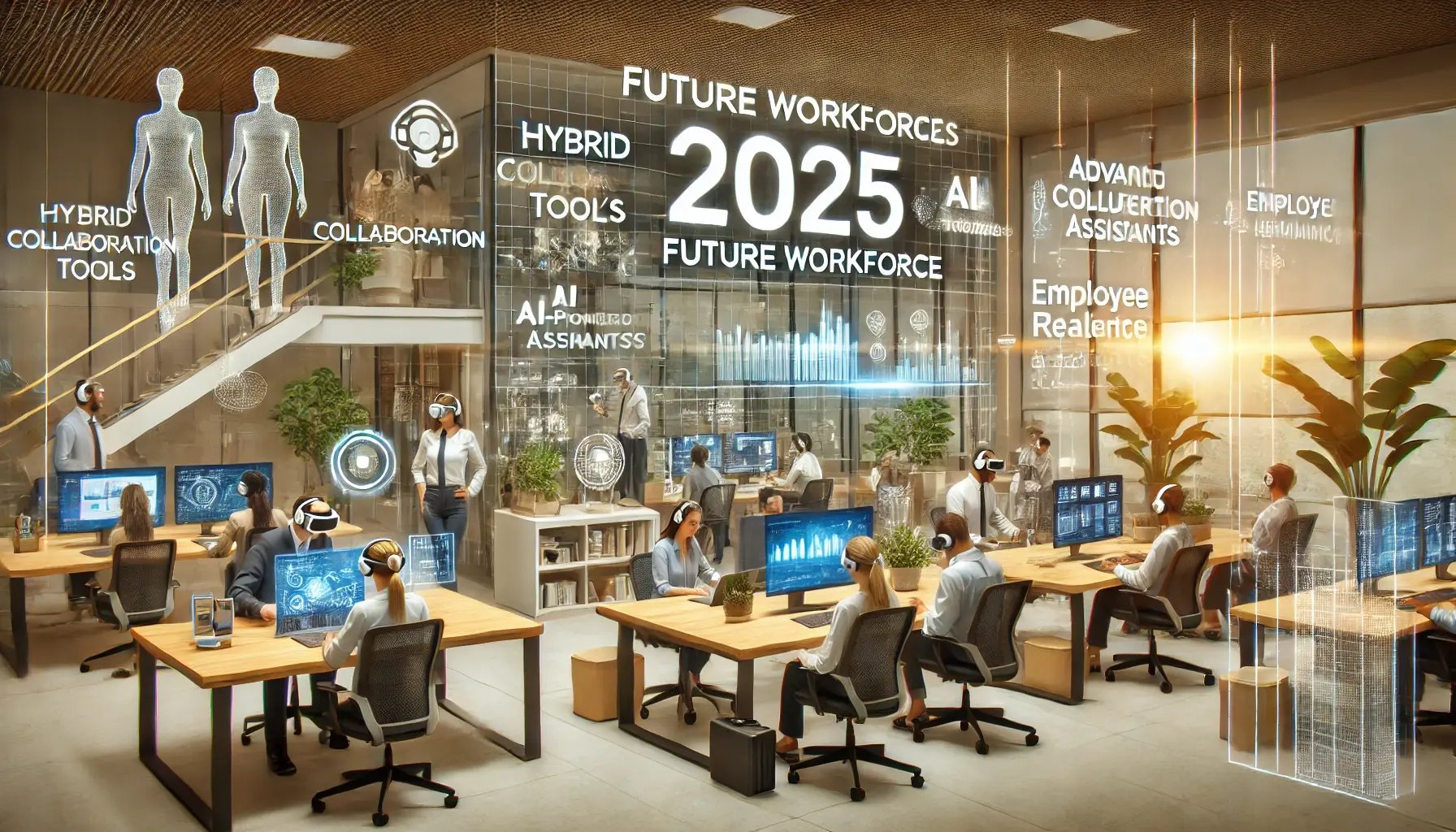10 min read
The Gen Z Workforce in India: What Top Employers Need to Know [2025]
Sourav Aggarwal
Last Updated: 17 February 2025
The Gen Z workforce is altering the map of India's corporate world at an unprecedented pace. These digital natives, born between 1997 and 2012, bring new points of view, work priorities, and career goals to organizations.
Gen Z will represent 27% of India's workforce by 2025, making them a crucial demographic. Organizations must understand their unique traits to adapt workplace strategies. Leaders need a full picture of Gen Z workforce trends and hiring practices.
This piece covers employment statistics, communication priorities, learning requirements, and ways to retain talent. You will learn what drives Gen Z and how to combine them smoothly into your organization. The insights will help you build a future-ready workplace.
Current State of Gen Z Employment
"India is a young nation with a 377 million Gen Z population which will shape the future of India's growth in the next two decades. Gen Z will be the biggest contributor to India's consumption growth driving $ 1.8 Trillion worth of direct spend by the year 2035." — Pulkit Trivedi, Managing Director, India, Snap Inc.
Statistics show Gen Z's growing impact on India's job market. Recent surveys reveal that 32% of Gen Z professionals are looking for jobs, and many have already started working. This marks a fundamental change in how workplaces operate.

Young professionals tend to pick specific industries. Here are the top sectors where Gen Z professionals are heading:
- Technology and IT services (38%)
- Digital media and entertainment (27%)
- E-commerce and retail (21%)
- Financial services (19%)
- Healthcare and wellness (15%)
More than that, Gen Z has a strong entrepreneurial spirit. 24% of them want to launch their own businesses within five years after starting their careers. This mindset shapes how they view traditional jobs.
Job role data shows Gen Z professionals do well in positions that blend technical skills with creative problem-solving. They often choose roles like digital marketing specialists, data analysts, and UX designers. On top of that, they're drawn to sustainability-focused positions and roles with artificial intelligence.
Remote work options play a big role in job decisions. 73% of Gen Z job seekers prefer companies that let them work flexibly, and they like hybrid models that mix office and remote work.
The job market shows some interesting location patterns. Big cities are still the main job centers, but tier-2 cities have become attractive options that offer better work-life balance. This matches Gen Z's desire to blend work and personal life smoothly.
Entry-level Gen Z professionals earn competitive salaries, especially in tech and finance. They prefer companies that offer performance bonuses and chances to learn new skills instead of traditional benefits packages.
Key Changes in Hiring Expectations
Recent data shows that Gen Z's hiring expectations have gone through a transformation. 67% of them value learning and development opportunities more than traditional job perks.

Salary Transparency Demands
85% of upcoming graduates won't even apply for jobs that don't show salary ranges. The numbers tell a clear story - 87% of Gen Z candidates put pay transparency at the top of their diversity and equity priorities. They see salary disclosure as a way to build trust. 53% of candidates stay away from companies that don't list specific salary ranges.
Work-life Balance Requirements
Gen Z has created new workplace boundaries that focus on mental and physical well-being. 67% of workers want their employers to support mental health. They've moved away from traditional work models. This generation doesn't want the usual office-bound culture because they know technology helps them work remotely.
Their work-life balance priorities look like this:
- Personal time matters more than long office hours
- They want flexible work options
- They back four-day work weeks to avoid burnout
- They want clear lines between work and personal time
Career Growth Priorities
Career development is a deal-breaker. 80% of Gen Z professionals value mentorship and clear growth paths more than salary. All the same, they see career growth differently than other generations did. 42% think training programs are the most vital part of career growth, while 38% focus on promotion chances.
Many employers thought Gen Z changed jobs just for better pay. But research paints a different picture - only 25% say salary is their main reason for switching jobs. 78% change positions because they want career growth. 73% like mixing formal training with hands-on work, and 70% believe structured mentorship really matters.
Gen Z wants organizations that invest in their future through solid learning programs. 76% want more time to learn new skills. They're driven by personal and professional growth. 87.2% say diversity and inclusion initiatives play a key role in their growth experience.
Successful Modern Recruitment Channels
Recruitment channels have changed significantly, with 73% of job seekers ages 18-34 finding their last position through social media. This transformation needs a fresh approach to hiring.
Social Media Hiring Strategies
The success of social media recruitment depends on how companies participate on each platform. 54% of Gen Z spends at least four hours daily on social media. These platforms have become prime spots for finding talent. Companies are seeing impressive results:
- TikTok: 60% of active users are Gen Z
- Instagram: 78% use it to learn about new brands
- YouTube: 89% engagement rate among Gen Z users
Among other factors, 67% of Gen Z prefer seeing real people in social media ads. We learned that employee-generated content gets 30% more engagement than corporate posts through authentic workplace stories and day-in-the-life videos.
Mobile-first Application Processes
Numbers tell the story - 58% of job seekers search for positions on their phones, and 35% prefer mobile applications. Companies must make mobile optimization their priority. A simplified mobile process is vital since 60% of Gen Z candidates expect application completion within 15 minutes.
Mobile recruitment creates smooth connectivity with candidates through instant updates and up-to-the-minute responses. Companies that lost talent due to lengthy applications now see better conversion rates - 365% higher when applications take five minutes or less.
Video Recruitment Tools
Video technology plays a key role in modern hiring. 76% of Gen Z candidates prefer communicating with prospective employers via instant messaging or text. Companies are now using video interviews and virtual job fairs to simplify their hiring process.
Advanced video recruitment tools analyze verbal responses, eye movements, and non-verbal communication. These analytical insights help predict candidate success while keeping the human element that 87% of job seekers think is vital when evaluating company reputation.
Using these modern channels requires balance. 81% of businesses plan to invest in AI-driven solutions to boost their hiring procedures while maintaining authentic human connections through video participation.
Communication and Work Style
Gen Z professionals show communication patterns that reflect their digital-first mindset. Knowing how to understand their priorities creates better workplace interactions and boosts productivity.

Preferred Communication Channels
Quick and direct communication drives Gen Z professionals. 82% prefer digital platforms over traditional email chains. Their favorite ways to communicate include:
- Slack and Microsoft Teams for instant messaging
- Video conferencing tools when they need face-to-face talks
- Project management apps with chat features built in
- Workplace platforms similar to social media
- Voice notes to share quick updates
Notwithstanding that digital communication leads their choices, Gen Z values personal connections too. In fact, 67% value meaningful face-to-face conversations, particularly during feedback sessions and problem-solving meetings.
Collaboration Priorities
Gen Z brings fresh viewpoints to team collaboration. They shine in digital spaces, yet their teamwork style blends virtual and physical elements. 73% of Gen Z workers choose hybrid collaboration models that mix remote work with office time.
Their project management shows clear patterns. Gen Z professionals like agile methods with short sprints and frequent check-ins. Visual project tracking tools catch their attention, and they value immediate progress updates.
Team dynamics reveal compelling trends. Gen Z believes in transparent team communication, with 89% stating they want open discussions about project challenges and solutions. They gravitate toward flat organizational structures where ideas flow freely whatever the hierarchy.
These young professionals excel at cross-functional collaboration. They naturally connect departments and bring fresh viewpoints to traditional business problems. Knowing how to work on platforms of all types and adapt to different communication styles makes them valuable team members.
Regular feedback shapes their work style. Gen Z wants frequent, casual feedback instead of yearly reviews. They look for quick input about their work and welcome constructive criticism through digital channels.
Their time management differs from older generations. Gen Z professionals work in focused bursts. They use time-blocking techniques and digital productivity tools to stay efficient. This approach makes them value flexible schedules and freedom to manage their own workload.
Learning and Development Needs
Professional development drives Gen Z's career choices. 91% of Gen Z professionals rank learning opportunities as their top priority when selecting employers. This preference shapes how organizations build their talent development strategies.

Training Format Preferences
Digital upbringing shapes Gen Z's learning style. 78% of these professionals love microlearning formats that break complex topics into digestible chunks. They gravitate toward short-form videos, interactive modules, and gamified learning experiences.
84% of Gen Z learners use smartphones to access training content. Mobile-optimized content and bite-sized lessons that fit into quick breaks make learning programs successful.
Peer-to-peer learning works well with this generation. 72% of Gen Z employees thrive in mentorship programs and shared learning sessions. These informal opportunities combined with traditional training create a complete development experience.
Skill Development Priorities
Gen Z professionals build versatile skill sets that blend technical expertise with soft skills. Their development priorities include:
- Data analysis and interpretation
- Digital marketing and social media management
- Artificial intelligence and machine learning
- Project management methodologies
- Public speaking and presentation skills
- Cross-cultural communication
- Leadership development
67% of Gen Z workers look for chances to build entrepreneurial skills through hands-on projects and ground applications. They value practical experiences with immediate benefits over theoretical learning.
Industry-recognized credentials appeal to 76% of Gen Z professionals who pursue certifications with their regular work. These certifications serve as portable proof of expertise that lines up with their need for career flexibility.
Personalized learning paths click with this generation. 82% report they participate more when training programs adapt to their progress and learning style. Quick feedback and performance metrics help them track their development experience.
Organizations see 31% higher retention rates among Gen Z employees who can access complete learning programs. This link shows why reliable development initiatives matter in talent retention strategies.
Retention Strategies That Work
"74 percent of Gen Z believes in changing jobs as a career development driver." — Acara Solutions India, Staffing and recruitment firm
Organizations need well-designed retention programs that line up with Gen Z professionals' career goals to keep top talent. Recent studies reveal that companies using targeted retention strategies see a 42% increase in Gen Z employee satisfaction.

Recognition Programs
Traditional employee-of-the-month awards no longer work. Gen Z professionals love peer recognition platforms where team members can celebrate achievements live. Companies that use digital recognition tools see 35% higher engagement from their Gen Z employees.
Recognition programs that appeal to Gen Z include:
- Social media-style appreciation platforms
- Points-based reward systems
- Virtual badges for skill mastery
- Team celebration events
- Sustainability-focused incentives
Growth Opportunities
Clear career paths matter most to Gen Z professionals. 84% of Gen Z employees stay with companies that offer growth opportunities. Smart companies create individual-specific development tracks that improve skills and provide leadership roles.
Mentorship programs work best, and 76% of Gen Z participants report higher job satisfaction. Young professionals learn directly from experienced leaders who guide their career paths and share knowledge.
Feedback Mechanisms
Gen Z retention depends on regular performance discussions. 89% of Gen Z workers want frequent, casual feedback instead of yearly reviews. Companies that use continuous feedback systems see 31% higher retention rates among Gen Z staff.
Digital platforms make quick check-ins and progress tracking easy. Personal connections are vital too. Teams perform better when managers hold weekly one-on-one meetings.
Multiple approaches work best for retention. Companies offering flexible work and growth opportunities see 47% lower turnover rates. Organizations that shape their retention programs around Gen Z priorities see better engagement.
Success in retention needs constant evaluation. Quick pulse surveys help companies spot areas that need improvement. Companies that keep an open dialog about workplace priorities create spaces where Gen Z professionals thrive.
Future Workforce Trends 2025
Indian workplaces are reaching a turning point as we approach 2025. Recent industry surveys express dramatic changes in job roles and workplace structures. Gen Z's influence drives these changes in organizational practices.

Emerging Job Roles
Gen Z professionals see constant changes in their job market. 63% of new positions focus on emerging technologies and eco-friendly practices. Popular roles now include:
- Sustainability consultants and carbon footprint analysts
- Virtual reality experience designers
- AI ethics compliance managers
- Digital wellness coordinators
- Remote team engagement specialists
Traditional roles have changed significantly too. Marketing jobs now need expertise in augmented reality. HR roles focus on people analytics and virtual culture building. 42% of organizations have created hybrid positions that blend technical skills with emotional intelligence.
Workplace Development
Office spaces look very different from their traditional versions. 78% of companies arrange their workspaces around collaboration zones instead of individual desks. These spaces combine technology smoothly and enable spontaneous virtual-physical team interactions.
Remote work shapes today's workplace culture. 84% of Gen Z professionals expect flexible work arrangements as a standard. Companies invest heavily in virtual collaboration tools and create immersive digital workspaces that mirror physical offices.
Mental health and wellness have become crucial in workplace design. 71% of companies now have meditation spaces and wellness zones in their offices. Virtual wellness programs have become standard and address unique stress factors affecting Gen Z workers.
Organizational hierarchies continue to flatten. 67% of companies use matrix-style management structures. This change matches Gen Z's preference for collaborative decision-making and transparent leadership.
Technology plays a bigger role as 89% of workplaces use AI-powered productivity tools. Automated task management and intelligent scheduling systems have become common. Gen Z professionals can now focus on creative and strategic work.
Global teamwork defines future workplaces. 76% of Gen Z professionals work with international teams regularly. This creates new challenges in managing time zones and cultural sensitivity training.
Data security shapes workplace policies. 92% of organizations have strict protocols for remote work. These measures reflect Gen Z's strong awareness of digital security and data protection.
Learning spaces have evolved too. 81% of companies have special zones for skill development and experimentation. These areas mix physical resources with augmented reality training modules to match Gen Z's hands-on learning style.
Conclusion
Gen Z's workplace priorities and expectations are crucial for organizations that want to succeed in India's changing business world. Their digital-native mindset and strong drive for growth and purpose have altered the map of traditional workplace norms.
Organizations just need a balanced approach to succeed with Gen Z employees. They should combine tech-driven solutions with real human connections and provide clear growth paths with consistent recognition. Companies that adapt their strategies this way see substantially higher participation and retention rates.
The workplace scene will keep changing as Gen Z's influence expands toward 2025. Smart employers are already rolling out flexible work arrangements. They invest in learning platforms and build shared spaces that match this generation's priorities.
These changes aren't challenges - they're chances to build stronger, more adaptable organizations. Gen Z brings fresh viewpoints, technical skills, and innovative thinking to help Indian companies compete in the global market.
FAQs
Q1. What percentage of the Indian workforce will Gen Z represent by 2025?
By 2025, Gen Z is expected to make up 27% of the workforce in India, making them a significant demographic in the job market.
Q2. What are the preferred communication channels for Gen Z in the workplace?
Gen Z professionals prefer instant messaging platforms, video conferencing tools, project management apps with built-in chat features, and social media-style workplace platforms. They value efficient digital communication but also appreciate meaningful face-to-face interactions.
Q3. How do Gen Z professionals approach learning and development?
Gen Z prefers microlearning formats, mobile-first learning platforms, and peer-to-peer learning opportunities. They focus on developing versatile skill sets that combine technical expertise with soft skills and value personalized learning paths.
Q4. What are the key expectations of Gen Z in the hiring process?
Gen Z candidates demand salary transparency, prioritize learning and development opportunities, and seek strong work-life balance. They also value clear career growth pathways and expect employers to support their mental health.
Q5. What retention strategies are effective for Gen Z employees?
Effective retention strategies for Gen Z include digital recognition programs, clear career progression paths, structured mentorship programs, and frequent, informal feedback mechanisms. Offering flexible work arrangements alongside growth opportunities has also shown to reduce turnover rates.
Q6. How is the workplace expected to evolve by 2025 to accommodate Gen Z preferences?
By 2025, workplaces are likely to feature more collaboration zones, flexible work arrangements, wellness-focused spaces, and flatter organizational structures. There will be increased integration of AI-powered productivity tools and a greater emphasis on cross-cultural collaboration and data security.

